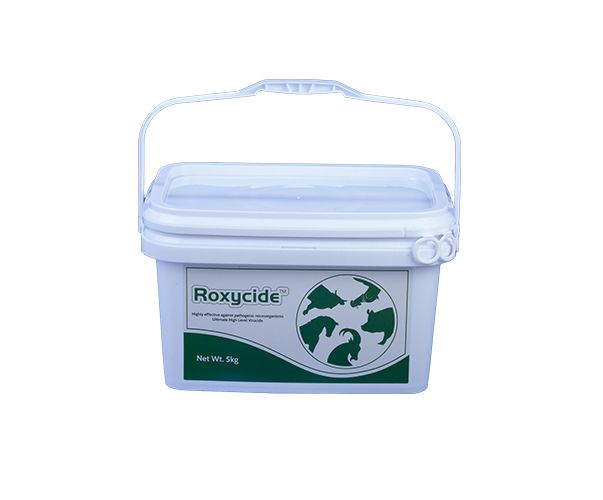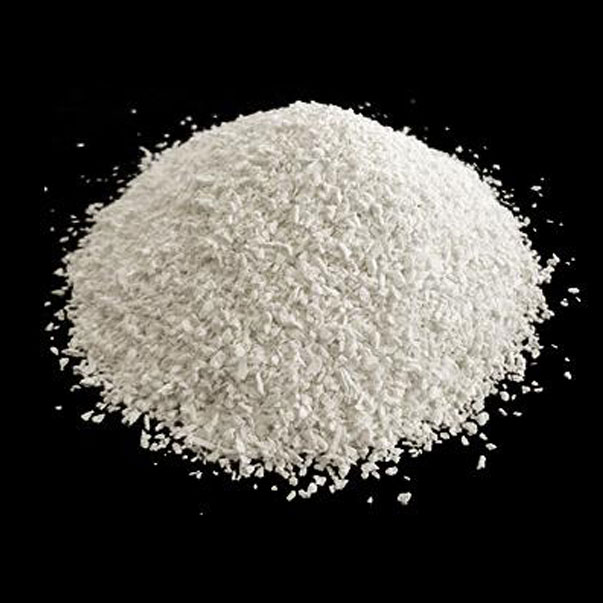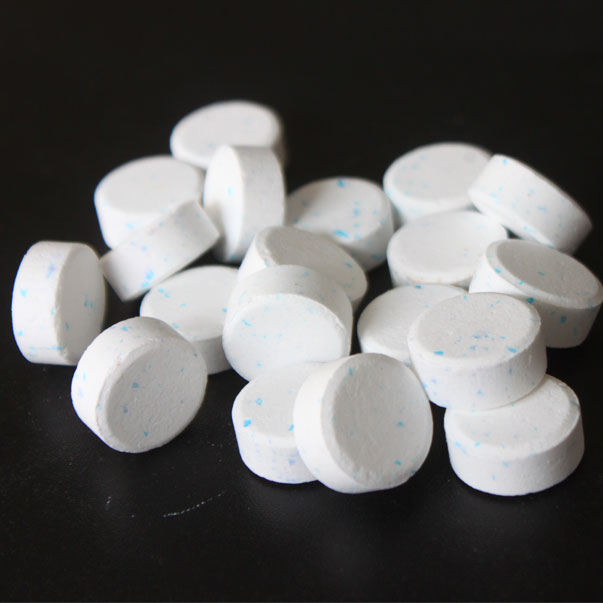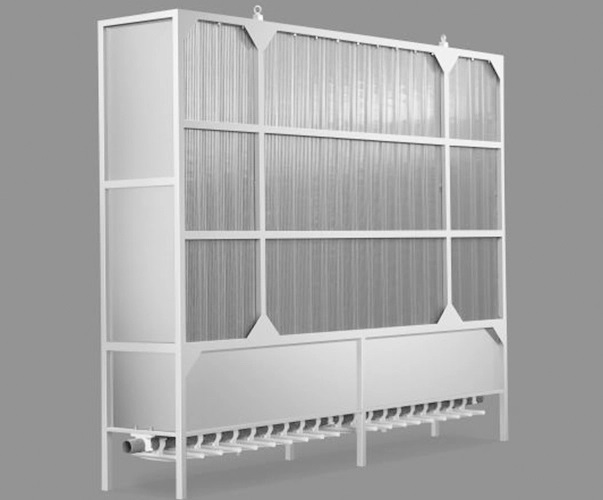-
Products

-
Industries

-
Resources

- FAQ
-
Video
- Company Representative Aditya Showcases Roxycide at Indonesian Livestock Exhibition-Indolivestock on July 26
- Roxycide in Phlippines poultry application
- Roxycide lab comparison test of solubility
- Roxycide For Aquaculture Disinfectant
- MBR Membrane
- SE 1
- MVI 4152
- 100ml Hand Sanitizer Gel
- 500ml Hand Hanitizer Gel
- 100ml Skin Disinfectant
- 500ml Skin Disinfectant
- 500ml Hand Sanitizer
- Feminine Wash
- Mouth Wash
- MBR Installation
- Rosun Lab
- Rosun Warehouse
- Rosun Company Introduction
- Roxcycide 1
- Roxycide Disinfectant Powder
- Roxycide
- SE 1 Waste Water Treatment
- Roxycide For Veterinary Disinfectant
- MBR
- Disinfectant Powder SE-1
- DW 1
- SDS
-
Product Catalogue
- SE-1 Product Introduction
- Wastewater Treatment Disinfectant Powder ICW-1
- Rosun Catalogue
- Feminine Wash Introduction
- DW-1 Product Introduction
- Bacteriostatic Antibacterial Hand Gel for Children
- ICW-1 Disinfectant Introduction
- Special Hand Wash
- Mouth Wash Introduction
- Rosun Disinfection Products Catalogue
- Application Case Of Dennis Commercial Plaza
- SE-1 Disinfectant Introduction
- Aquaculture Disinfectant
- ROSUN MBR Brochure
- Disinfectant Powder DW 1 Product Introduction
- Roxycide Aquaculture Disinfection
- ROSUN MBR Brochure
- Roxycide Livestock Poultry Pet Vet Disinfection
- Roxycide Poultry Disinfectant
- Feminine Wash Introduction
-
Research & Development
-
Technical Help
-
After-Sale Service
- Shipping Info
-
Sustainability

-
About Rosun

-
Media Center

-
Company News
- Expanding the Horizon: Xinjiang Rosun Environmental Engineering Co., Ltd. Holds Groundbreaking Ceremony
- New Home, New Year | Embracing Prosperity with the 'Shining Future' Sports Event!
- Chengdu Rosun Disinfection Pharmaceutical Co., Ltd Highlights Successful Participation at Indolivestock 2023 Event in Surabaya,Indonesia
- Rosun Group Plays a Key Role in Developing the National Technical Specification for Zero Discharge of Industrial Circulating Cooling Water
- 2019 business development training-bangkok pattaya trip ended successfully
- Rosun provides technical training for indonesia distributor
- Actively participated in the formulation of relevant national and industrial standards
- Academic promotion and technical exchanges of the malaysian span committee
- The groundbreaking ceremony of sichuan water prince environmental technology co., ltd. was a complete success
- Exhibition Announcement
- Logistics Committee of China Hospital Association Concluded Successfully
- Joyful and Significant Luncheon with Philippine customers: “Roxycide's Application in Livestock Farming
- Conference Update | Rosun Makes Debut at the 7th Huaxi International Infection Control Academic Conference
- Collaborate on the same boat for health | Rosun donates disinfection supplies to Zhuozhou City August 21, 2023
- Roxycide Shines at Philippine Poultry Show, Driving Green Transformation in Livestock Industry
- Industry News-The 13th Leman China Swine Conference & World Swine Industry Expo
- 2024 7th China Aquatic High-Value Feed Development Forum and 4th Agribusiness Summit
- Rosun Showcases Full-Cycle Water Management Solutions at Qingdao Livestock Expo, Empowering Green Development in Animal Husbandry
- Chengdu Rosun Disinfection Pharmaceutical Co., Ltd Shines at the 14th World Pig Industry Expo & Leman China Swine Conference
- Events
-
Industry News
- Integration, Precision Nutrition, Digital Intelligence, and Cost Efficiency — 2025 Poultry Nutrition and Health Forum Opens Grandly in Beijing
- Innovation and Smart Technologies Inject New Momentum into China’s Poultry Industry
- Beijing is water pollution prevention and control work plan issued in 2019, sewage treatment rate will reach 94%
- Potassium monopersulfate
- Announcement of the national health commission on issuing mandatory health industry standards
- New standards for drinking water hygiene will be promulgated and implemented next year
-
Blog
- The advantages of MBR
- The Role of Polyacrylamide in Enhancing Gold and Silver Extraction Processes
- Unlocking the Efficiency of Coal Extraction with Polyacrylamide
- Optimizing Copper Extraction with Polyacrylamide
- What’s White Feces Syndrome (WFS)?
- Industrial Circulating Water Treatment Technology
- Application of Membrane Bioreactor in Current Sewage Treatment
- Common Disinfection Methods for Drinking Water Treatment
- How to Properly Use Disinfectants in Poultry Breeding?
- Application and Function of Chlorine-containing Disinfectant Powder
- Mbr Membrane Bioreactor is Essential in Sewage Treatment
- Five Misunderstandings of Poultry Breeding Disinfection
- Advantages of MBR Flat Sheet Membranes in Wastewater Treatment
- Application and Effect of Calcium Hypochlorite Disinfectant in Poultry House Disinfection
- What Are the Advantages and Disadvantages of MBR?
- Comparison of MBR Wastewater Treatment and Traditional Wastewater Treatment Technology
- The Magical Effects of Disinfectant for Chicken House
- MBR Flat Sheet Membrane Has Industrial Wastewater Treatment Capability
- How to Correctly Select and Effectively Use Aquaculture Disinfectants
- Application Advantages of Membrane Bioreactor Technology
- Analysis of the Characteristics of Calcium Hypochlorite Disinfectants
- Notes on Hospital Sewage Treatment Technology
- How to Treat Poultry Farm Waste Water Normally?
- Types of Pig Pen Disinfectants
- How to Do Disinfection of Poultry Farming in Summer? What are the Common Disinfectants?
- Principles & Advantages of Hospital Waste Water Treatment Equipment
- What Are the Commonly Used Pig Pen Disinfectants?
- What Are the Precautions for Using Household Disinfectants?
- Application Scope and Precautions of Two Types of Disinfectants
- Details of Aquatic Disinfectant
- Annual Sales Growth Training Camp of ROSUN Finished with a Perfect Ending
- Tips for Hand Sanitisers
- The Categories and Precautions for Animal Disinfectant Products
- Tips for Mouth Wash
- Introduction to the Knowledge of Female Hygiene Wash
- Introduction of Sanitizer 75 Alcohol and 84 Disinfectant
- Dosage and Using Method of Chicken Coop Disinfectant and Disinfectant Spray
- How to Choose Chicken Coop Disinfectant and Prepare Before Disinfection Spray
- Pet Disinfection: Which Disinfection Is Best for Cats and Dogs at Home?
- Five Misunderstandings when Using MBR Flat Sheet Membrane
- Requirements for the Use of Disinfectant Sprays on Poultry Farms
- Common Water Sanitizer for Aquaculture
- What Kind of Disinfectant in Poultry Farm is Better?
- MBR Membrane Bioreactor Technology and Characteristics
- How to Choose the Swine Disinfectant?
- The Advantages of MBR Flat Sheet Membrane Compared with Hollow Fiber MBR
- How to Choose an MBR Bioreactor Manufacturer?
- Five Tips for Efficient and Safe Use of Disinfectants in Aquaculture
- Methods of Disinfection of Swine Barns
- Types and Application of Poultry Farm Disinfectants
- Cleaning Process and Precautions of MBR Flat Sheet Membrane
- Protection and Replacement of MBR Flat Sheet Membrane and Its Operation Process
- For Chicken House Disinfection, the Choice of Disinfectant Solution is Very Important
- What Are the Advantages of MBR Membrane Compared with Traditional Sewage Treatment?
- What Are the Classification and Advantages of MBR Flat Sheet Membrane?
- Disinfectants Commonly Used in Livestock and Poultry Farms
- Technology of Municipal Sewage Treatment
- Municipal Sewage Treatment Knowledge
- What Leads to the Different Tastes of Water?
- What Do You Know About Disinfection Byproducts?
- New Type Method of Drinking Water Disinfection
- Get to Know the Advantages of MBR Flat Sheet Membrane Compared to Hollow Fiber Membrane in One Minute
- What Affects the Disinfection Effect of Disinfectant Solutions in Farms?
- Why MBR Screen Protectors for Tablets are So Popular - Here's the Reason!
- Analysis of Advantages of MBR Membrane Wastewater Treatment Process
- What Are the Application Areas of MBR Tablet Film?
- Various Disinfectant Solutions for Different Settings: Are You Using Them Appropriately ?
- Mechanism of Disinfectant Solutions Use for Different Types of Animals
- How Does MBR Flat Sheet Membrane Sewage Water Treatment Equipment Handle Wastewater?
- Constituents and Influencing Factors of MBR Flat Sheet Membrane Pollution
- Installation and Precautions for MBR Flat Sheet Membrane
- Operating Principle and Maintenance of MBR Flat Sheet Membrane Filtration
- Technology of Sewage Water Treatment
- What Are the Types of Common Swine Barn Disinfectant and How to Choose?
- The Role and Principles of Scale Inhibitors in Water Treatment
- Understanding Chemical Cleaning of Reverse Osmosis Membrane in a Single Article
- An Introduction to the Importance of MBR Membrane Flux Recovery Effects
- How to Choose Antimicrobial and Algaecide Agents for Recirculating Water Systems
- Cleaning Method for Blocked MBR Flat Sheet Membrane
- Overview of Urban Sewage Water Treatment Processes
- Choosing the Right Chicken Disinfectant: A Guide for Poultry Farmers
- The Importance of Chicken Disinfectants: Keeping Your Flock Healthy
- Mbr Flat Sheet Membrane Technology: A Breakthrough in Wastewater Treatment
- Natural vs. Chemical: Exploring Different Types of Chicken Disinfectants
- From Contaminated to Clean: the Role of MBR Flat Sheet Membranes in Industrial Wastewater Treatment
- Guarding Your Flock: The Benefits of Poultry Disinfectant Spray
- The Power of Prevention: Poultry Disinfectant Spray in Disease Control
- Utilizing Polyacrylamide Flocculant in Mineral Extraction
- Exploring the Benefits of Chlorine Powder Disinfectants
- Sustainable Solutions: MBR Flat Sheet Membranes in Agricultural Water Reuse
- Guardians of Health: Chlorine Powder Disinfectants in Healthcare Facilities
- Innovative Healthcare: MBR Flat Sheet Membranes in Medical Facility Water Treatment
- Protecting Your Four-Legged Friends: The Importance of Horse Stall Disinfection
- A Clean Stall Is a Happy Stall: Tips for Effective Horse Stall Disinfection
- Clean Coops, Happy Hens: Choosing the Right Chicken Disinfectant for Your Flock
- Guarding Your Brood: The Vital Role of Chicken Disinfectants in Disease Prevention
- Feline-Friendly Spaces: the Importance of Using Animal-Friendly Disinfectants for Cat Environments
- Gentle Cleanliness: Choosing the Best Animal-Friendly Disinfectant for Your Home
- Clear Waters Ahead: The Role of MBR Filter Membranes in Wastewater Treatment
- Beyond The Lab: MBR Filter Membranes In Pharmaceutical Water Purification
- Filtration Excellence: MBR Filter Membranes in Industrial Water Purification
- Swimming Pool Water Treatment Chemicals: A Dive into Clarity and Safety
- The Importance of Advanced Hospital Sewage Treatment
- The Hidden Hero: Hospital Sewage Treatment's Contribution to Public Health
- Morning Bloom: Daily Feminine Wash for Daily Refreshment
- Potassium Monopersulfate Disinfectant: A Powerful Shield for Pool Hygiene
- Beyond the Stalls: Versatile Horse Stall Disinfectant for Equestrian Facilities
- Everyday Bliss: Daily Feminine Wash for Daily Serenity
- Jumping into Cleanliness: Horse Stall Disinfectant for Jumping Arenas
- Canine Comfort: Animal-Friendly Disinfectant for Dog Boarding Facilities
- Urban Oasis: MBR Flat Sheet Membrane in Public Park Water Features
- Fine-Tuned Filtration: Automatic Self-Cleaning Disc Filters in Pharmaceutical Manufacturing
- Fowl-Friendly: Poultry Disinfectant Spray for Free-Range Environments
- Efficiency Redefined: Automatic Self-Cleaning Disc Filters in HVAC Systems
- Cluck Clean: Poultry Disinfectant Spray in Backyard Chicken Coops
- Beyond Borders: SDIC's Global Impact on Public Health
- Ripples of Cleanliness: Water Disinfectant Powder in Riverbank Recreational Areas
- Clean and Green: Industrial Laundry Wastewater Treatment in Eco-Friendly Resorts
- Fountain of Health: Water Disinfectant Powder in Healthcare Facility Sanitation
- Subtle Harmony: Daily Feminine Wash for All-Day Comfort
- Sterilizing Spa Serenity: Potassium Monopersulfate in Wellness Centers
- Oceanic Opulence: Animal-Friendly Disinfectant for Marine Mammal Enclosures
- Polo Pitch Perfection: Horse Stall Disinfectant in Polo Club Stables
- Elevating Water Safety: Potassium Monopersulfate Disinfectant in Hot Tubs
- Healthcare Hygiene: MBR Flat Sheet Membrane in Hospital Wastewater Treatment
- Chill and Thrive: MBR Flat Sheet Membrane in Cooling Tower Water Recycling
- Aqua Culture Advancements: Automatic Self-Cleaning Disc Filters in Fish Farming
- Flock Defense: Poultry Disinfectant Spray in Broiler Houses
- Barnyard Bounty: Animal-Friendly Disinfectant for Agricultural Animal Spaces
- Harvesting Hygiene: Water Disinfectant Powder in Crop Irrigation Systems
- Greening the Garment Industry: Industrial Laundry Wastewater Treatment in Sustainable Fashion
- Sodium Dichloroisocyanurate (SDIC): A Versatile Water Treatment Wonder
- Safe and Sound: SDIC's Applications in School and Institutional Water Treatment
- Smart Uniforms, Smart Environment: Industrial Laundry Wastewater Treatment for Technologically Advanced Apparel
- Chlorine Powder Brilliance: Safeguarding Health in Multiple Environments
- Aquatic Disinfectant Mastery: Applications Unveiled for Pools and Spas
- Chemical Dynamics: Trichloroisocyanuric Acid Factory's Applications Reshaping Industries
- Chlorine Powder Revolution: Elevating Hygiene Standards in Various Sectors
- The Blue Revolution: Aquatic Disinfectant's Contribution to Sustainable Fishing
- Cooling Circuits Perfected: TCCA Company's Revolutionary Water Treatment
- Trichloroisocyanuric Acid Factory Marvels: Exploring Applications in the New Age
- Aquatic Disinfectant Marvels: Purifying Aquariums and Marine Habitats
- Innovation at Work: Trichloroisocyanuric Acid Factory's Diverse Applications
- Crystal Clear Solutions: Harnessing Chlorine Powder for Effective Disinfecting
- Guardians of Hydration: TCCA Company's Impact on Water Purification
- Revolutionizing Shellfish Farming: Aquaculture Disinfectants in Action
- Liquid Tranquility: TCCA Company's Role in Enhancing Pool Hygiene
- Combatting Aquatic Pathogens: The Evolution of Aquaculture Disinfectants
- Aquaculture Disinfectants: Strategies for Sustainable Fish Farming
- Application of Calcium Hypochlorite Surface Disinfectants in the Food Processing Industry
- MBR Flat Sheet Membrane: An Efficient Separation for Pharmaceutical Wastewater
- Livestock Disinfectant: Guardian of Companion Animal Health
- Livestock Disinfectant: Providing Sanitary Assurance for the Dairy Industry
- Aquatic Disinfectant: The Nemesis of Pathogenic Microorganisms in Aquatic Environments
- Do You Really Understand MBR Flat Sheet Membranes?
- Principles of Municipal Sewage Treatment Engineering
- Hospital Waste Water Treatment and Water Disinfectant Powder
- Why Use Potassium Monopersulfate Disinfectants in Aquaculture?
- Why Is the Cattle Disinfectant of Dairy Farms So Important?
- Functions and Uses of Water Disinfectant Powder
- MBR Flat Sheet Membrane in Hospital Sewage Treatment
- Membrane Bioreactors Raise Wastewater Treatment Efficiency
- Safe Use of Aquaculture Disinfectant
- Horse Disinfectant: A Helper for Stable Cleaning and Disinfection
- The Importance of Pig Pen Disinfectants
- Five Major Mistakes in the Use of MBR Flat Sheet Membranes
- MBR Flat Sheet Membrane for Industrial Wastewater Treatment
- Disinfectant in Poultry Farm: The Green Guardian
- MBR Flat Sheet Membrane: Improving Treatment Efficiency
- The Advantages of MBR Sheet Membrane for Treating Industrial Boiler Cleaning Wastewater
- Water Treatment Chemicals China: Protecting Water Resources Behind the Scenes
- MBR Flat Sheet Membrane: Leading the Way in Wastewater Treatment
- Unveiling the Safety of Poultry Disinfectant for Chickens
- Steps for Using Poultry Disinfectant
- Automatic Sand Filter: The Ideal Choice for Water Quality Treatment
- The Role of Disinfectant Calcium Hypochlorite in Wastewater Treatment Plants
- Thorough Disinfection Ensures Worry-Free Hospital Sewage Treatment
- Analysis of the Critical Role of Water Disinfectant Powder in Sewage Treatment
- MBR Flat Sheet Membrane Applications
- How to Effectively Disinfect the Environment at Home After a Cat Contracts Feline Panleukopenia
- MBR Flat Sheet Membrane: The Amazing Technology That 'Transforms' Sewage
- Application of MBR Flat Sheet Membrane in Meat Processing Industry
- A Guide to the Uses of Aquaculture Disinfectant
- Exploring the Application of Disinfectant Calcium Hypochlorite in the Field of Floriculture
- Guidelines for the Safe Use of Disinfectant Calcium Hypochlorite and Emergency Response Measures
- Uses and Dangers of Disinfectant Calcium Hypochlorite
- Application of MBR Flat Sheet Membrane in the Sugar Industry
- Standard Operating Procedures And Techniques For Disinfectant Calcium Hypochlorite In Hospital Disinfection
- Precautions for Swine Barn Disinfectant
- How to Tackle the Number One Enemy of Litopenaeus vannamei – Vibrio Disease
- What is Enterocytozoon Hepatopenaei (EHP) in Shrimp Farming?
- Sewage Treatment MBR Flat Sheet Membrane: Selection, Cleaning, and Tank Calculation
- Why It Is Important to Use Animal Disinfectant Products
- The Importance of Choosing the Right Disinfectant for Cattle Sheds
- How to Properly Use Disinfectants in Poultry Farms?
- Advantages of Choosing Roxycide Disinfectant for Chicken Coop Disinfection
- Hidden Health Threats in Swimming Pools: Scientific Protection for Safe Swimming
- Features of the Automatic Self-Cleaning Disc Filter
- The Role of Water Disinfectant Powder in Hospital Sewage Treatment
- Textile Disinfectant: A Reliable Helper in Hospital Disinfection and Cleaning
- How to Choose an MBR Flat Sheet Membrane Manufacturer
-
Company News
-
Contact Us

Search
Your recent searches
Your recent searches will appear here

 English
English  日本語
日本語  français
français  Deutsch
Deutsch  Español
Español  русский
русский  português
português  العربية
العربية  tiếng việt
tiếng việt  ไทย
ไทย  Polska
Polska 



